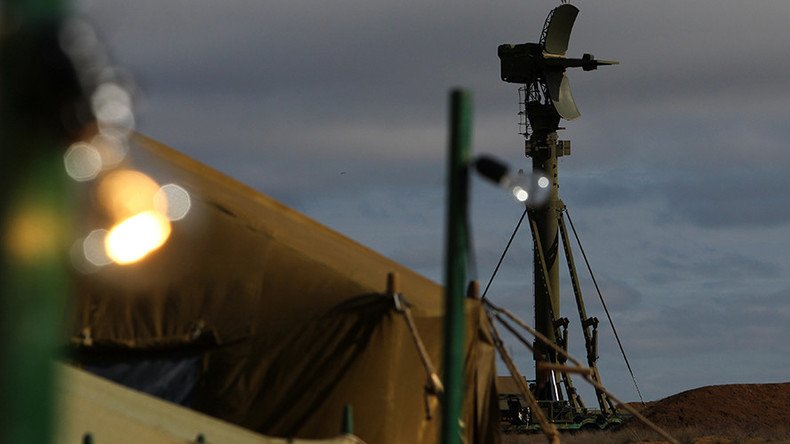Russia to counter NATO expansion with new radar station in Crimea - source

Russia will restore a missile attack warning station near Crimea’s Sevastopol to counter increasing NATO activity in the Black Sea, Izvestia daily reported, quoting a source in the Russian defense industry.
The source told reporters that the installation will be based on the Soviet-era Dnepr station (NATO code name Hen House), but that it would be thoroughly modernized. After the facility is overhauled it will be able to register launches of ballistic and cruise missiles, including the latest hypersonic models from the Black and Mediterranean Seas, effectively protecting Russian territory from the south and southeast.
READ MORE: Russia launches new missile defense to cover Atlantic
The source also said that in order to make the whole project cheaper, defense industry specialists had opted to restore the abandoned Dnepr station using equipment from a similar station near Irkutsk in Eastern Siberia, instead of building a new Voronezh-class facility.
Izvestia also reported that the building of the new station will take about 18 months and that the working site would be manned by 15 specialists.
“After the collapse of the USSR the Dnepr station fell under Ukrainian jurisdiction. Russia rented it for some time, but the contract has been severed on Kiev’s initiative and the station was not used for over 10 years and became completely inoperable,” air defense systems expert Mikhail Khodarenok told reporters. He added that the loss had been fully offset by launching the Voronezh-DM radar station near the Russian city of Armavir, but increasing activity of NATO forces near Russian borders demands further improvement of warning and defense systems.
Vadim Kozyulin of the Academy of Military Studies told Izvestia that by launching the new station near Sevastopol, Russia would restore the radar field securing all-round defense against missile attacks. The defense expert also said Russia would be able to defend itself against the newest small and high-precision weapons, as it was demonstrated in 2013 when the radar in Armavir registered the launch of the Sparrow target missiles near Israel conducted for US missile defense tests.
The Russian Defense Ministry told Rossiyskaya Gazeta daily later in the day that the final decision concerning the radar station in Crimea had not been made yet.
The Crimean Republic became part of the Russian Federation over two years back, after over 96 percent of its residents – the majority of whom are ethnic Russians – voted for the move in an urgently called referendum. The decision was prompted by the change of regime in Ukraine, which ousted the democratically-elected president and government and started a war against the Russian-speaking population in the southeastern regions of the country.
In March 2015 the head of the Crimean Republic, Sergey Aksyonov, told Sputnik news agency that the region would support the placement of nuclear weapons on its territory were such a decision made in Moscow. He added that he personally was sure that nuclear weapons were perfectly safe for Crimea’s environment because Russian technologies in this field were the most advanced in the world.
Shortly before this, a Russian Foreign Ministry official said that Russia had the right to place nuclear weapons on the peninsula.
READ MORE: Russia has right to place nuclear arms on its soil, including Crimea - Foreign Ministry
During the latest major inspection of the Russian Military Forces, the Defense Ministry reported on the plans to deploy 10 Tupolev 22M3 strategic bombers to Crimea, but did not specify if it was planned to equip the aircraft with nuclear-tipped bombs and missiles.













